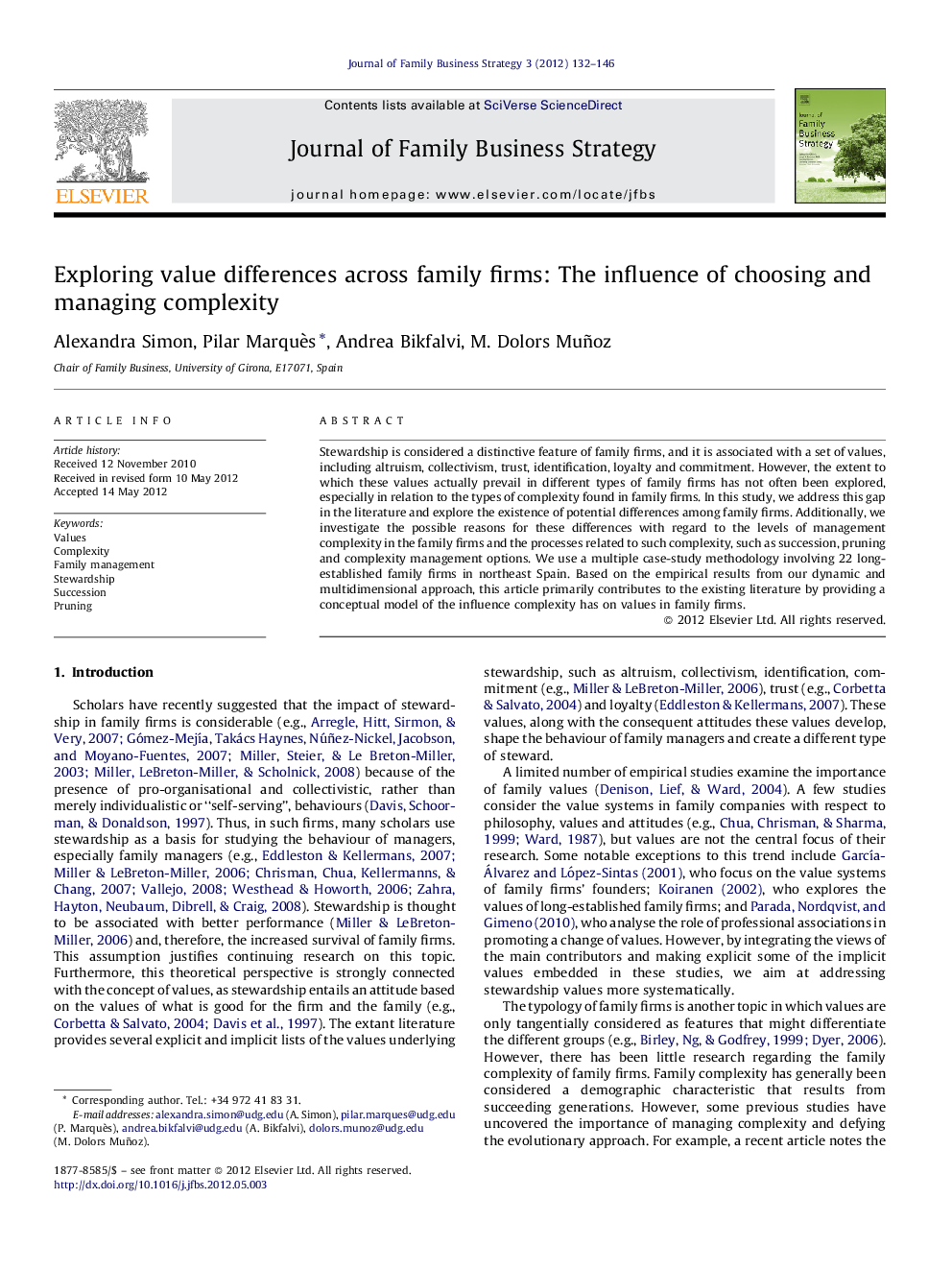| Article ID | Journal | Published Year | Pages | File Type |
|---|---|---|---|---|
| 1020126 | Journal of Family Business Strategy | 2012 | 15 Pages |
Stewardship is considered a distinctive feature of family firms, and it is associated with a set of values, including altruism, collectivism, trust, identification, loyalty and commitment. However, the extent to which these values actually prevail in different types of family firms has not often been explored, especially in relation to the types of complexity found in family firms. In this study, we address this gap in the literature and explore the existence of potential differences among family firms. Additionally, we investigate the possible reasons for these differences with regard to the levels of management complexity in the family firms and the processes related to such complexity, such as succession, pruning and complexity management options. We use a multiple case-study methodology involving 22 long-established family firms in northeast Spain. Based on the empirical results from our dynamic and multidimensional approach, this article primarily contributes to the existing literature by providing a conceptual model of the influence complexity has on values in family firms.
► Based on stewardship literature we empirically explore value differences among types of family firms. ► Value differences can be explained in terms of family-management complexity level and related processes, such as succession and complexity management choices. ► We propose a conceptual model of the dynamic influence between complexity and values. ► Family firms and practitioners can draw implications for managing values and complexity.
